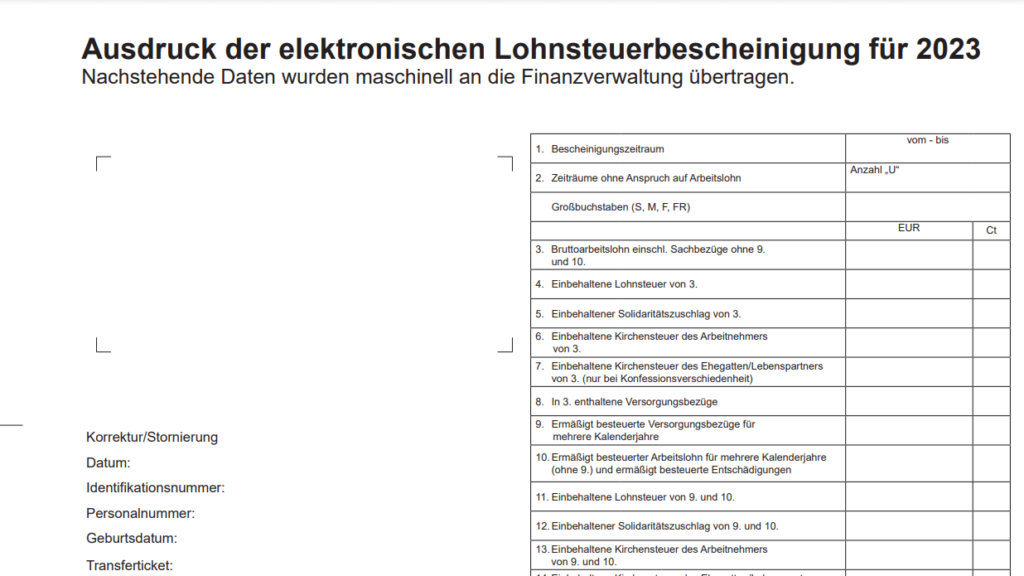Navigating through different aspects of the German tax system can be a daunting task, but it’s an essential aspect of financial responsibility for residents and taxpayers. One crucial document that taxpayers receive is the “Steuerbescheid,” commonly known as the tax notice. In this comprehensive guide, we will delve into the intricacies of a German tax notice, exploring the information it contains, when and how it is issued, and providing valuable insights on how to interpret and understand this crucial document.
1. Anatomy of a German Tax Notice
1.1 Personal Information
The tax notice begins with a section containing your personal details, including your name, address, and tax identification number. It is imperative to verify that this information is accurate, as any discrepancies could lead to complications in the assessment process.
1.2 Taxable Income
One of the core components of the tax notice is the breakdown of your taxable income. This section details the various sources of income that are subject to taxation, such as employment income, self-employment income, rental income, and other forms of earnings.
1.3 Deductions and Allowances
The tax authorities consider eligible deductions and allowances to determine your net taxable income. Common deductions include business expenses, education expenses, and special allowances. Ensuring that all applicable deductions are accurately reflected is crucial to optimizing your tax liability.
1.4 Tax Rates and Calculations
The tax notice provides a transparent view of the applied tax rates and calculations. Understanding how the tax authorities arrived at the final tax amount involves reviewing the mathematical computations and ensuring that the correct tax brackets and rates have been applied.
1.5 Tax Liability or Refund
This section reveals the crux of the matter – the amount you owe in taxes or the refund you are entitled to receive. It’s essential to grasp how this final figure is derived, as it directly impacts your financial obligations or windfall.
2. When and How Tax Notices Are Issued
2.1 Filing Deadline
In Germany, the deadline for filing an income tax return is July 31 of the following year. But due the Covid pandemic, these deadlines are moved to different dares. The updated tax deadlines are as follows:
- 2021 – 31.10.2022
- 2022 – 02.10.2023
- 2023 – 02.09.2024
The from the tax return for 2024 the general deadline of 31st July of the following year will be followedTaxpayers are required to submit accurate and complete information by this date to facilitate the timely processing of their tax notices.
2.2 Processing Time
After receiving your tax return, the tax authorities meticulously review the information provided. The processing time can vary, but taxpayers can generally expect to receive their tax notices in between 3-10 weeks. In certain cases this might take even up to several months based on the workload of the tax office.
2.3 Understanding Your Tax Notice: A Step-by-Step Guide
- Check Personal Information: Begin your review by verifying the accuracy of your personal information. Any errors should be promptly addressed with the tax authorities to avoid potential complications.
- Review Income and Deductions: Thoroughly scrutinize the breakdown of your income and deductions. Ensure that all sources of income are accounted for and that any eligible deductions or allowances have been considered.
- Check Calculation: Delve into the mathematical calculations presented in the tax notice. Confirm that the tax rates and brackets have been applied correctly, and verify the accuracy of any tax credits or reductions.
- Tax Liability or Refund: Understand the implications of the final figure – whether you owe taxes or are eligible for a refund. If you are required to make a payment, the tax notice will provide clear instructions on how and when to fulfill this obligation.
3. Appeals and Further Actions
3.1 Appeals Process
If you find discrepancies or disagree with the tax assessment, you have the right to appeal. The tax notice typically includes information on the appeals process, outlining the steps to follow and the deadline for submitting an appeal. In general, the appeal should be filed within 30 days of receiving of the tax notice. After that is will not be possible anymore to file an appeal against your tax notice.
3.2 Seeking Professional Guidance
In cases of complexity or uncertainty, seeking professional advice from a tax advisor is a prudent step. A tax professional can provide insights, address concerns, and guide you through the appeals process if necessary.
Conclusion
Receiving a German tax notice may initially seem overwhelming, but with a systematic approach to review and understanding, taxpayers can navigate this process with confidence. Regularly staying informed about changes in tax regulations and seeking professional guidance when needed ensures that you fulfill your tax obligations accurately and efficiently. Remember, the key to financial well-being lies in a comprehensive understanding of your tax notice and taking proactive steps to optimize your tax situation.


